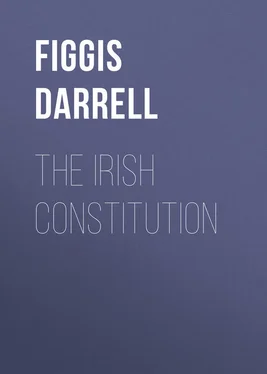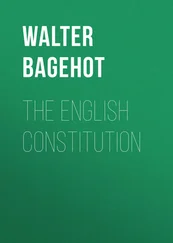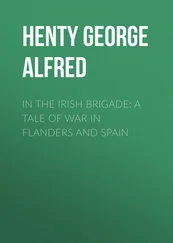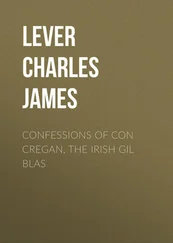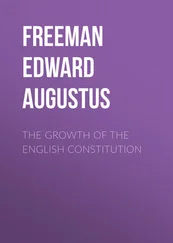Darrell Figgis - The Irish Constitution
Здесь есть возможность читать онлайн «Darrell Figgis - The Irish Constitution» — ознакомительный отрывок электронной книги совершенно бесплатно, а после прочтения отрывка купить полную версию. В некоторых случаях можно слушать аудио, скачать через торрент в формате fb2 и присутствует краткое содержание. Жанр: foreign_antique, foreign_prose, на английском языке. Описание произведения, (предисловие) а так же отзывы посетителей доступны на портале библиотеки ЛибКат.
- Название:The Irish Constitution
- Автор:
- Жанр:
- Год:неизвестен
- ISBN:нет данных
- Рейтинг книги:3 / 5. Голосов: 1
-
Избранное:Добавить в избранное
- Отзывы:
-
Ваша оценка:
- 60
- 1
- 2
- 3
- 4
- 5
The Irish Constitution: краткое содержание, описание и аннотация
Предлагаем к чтению аннотацию, описание, краткое содержание или предисловие (зависит от того, что написал сам автор книги «The Irish Constitution»). Если вы не нашли необходимую информацию о книге — напишите в комментариях, мы постараемся отыскать её.
The Irish Constitution — читать онлайн ознакомительный отрывок
Ниже представлен текст книги, разбитый по страницам. Система сохранения места последней прочитанной страницы, позволяет с удобством читать онлайн бесплатно книгу «The Irish Constitution», без необходимости каждый раз заново искать на чём Вы остановились. Поставьте закладку, и сможете в любой момент перейти на страницу, на которой закончили чтение.
Интервал:
Закладка:
The Irish Constitution
I
WHAT IS A CONSTITUTION?
During the early days of the second French Republic a customer entered a bookseller’s and asked: “Have you a copy of the French Constitution?” “We do not,” the bookseller politely replied, “deal in periodical literature.”
Now, to any student of history such a story is a sure indication of the time of which it is told. He need not inquire to know that the time was one of revolution, change, and unsettlement. He also knows the mind of the people of that time, for insecure conditions beget a nervous, restless fear. And these things are significant. They reveal a quality of constitution-making that is not always, or easily, remembered. For whatever changes may proceed in legislation – however many and rapid they be – as long as the Constitution, written or unwritten, remains intact, the State at least is stable and its foundations are secure.
Plainly, therefore, nothing should be written into a Constitution that is of a temporary, experimental, or questionable nature, or which should fall to the lot of ordinary law-making and the changing convenience of practice. A Constitution is that which is permanent, as far as anything in this world may be permanent. Even to amend it, or add to it, requires in all countries (except England, where the Constitution has not taken a written form) a procedure quite different from that of ordinary legislation. To change it, or recast it, requires a revolution. Such a revolution may not be accompanied by bloodshedding, or it may, but it is certainly accompanied by insecurity and unsettlement.
It should, therefore, be the business of constitution-makers to prescribe only what to them is fundamental and irrefutable; to lay down the secure foundations of their State; and to leave all other matters to the experience of the nation, without seeking to shackle that experience by provisions that time may not commend. Otherwise, a convulsion may be necessary to get done what ordinary legislation could have accomplished without affecting the stability of the State.
This, then, is the first definition of a Constitution, that it contains the Fundamental Law of a State, and only the Fundamental Law. In England there is no such thing as a Fundamental Law. It is claimed by English constitutional lawyers that this is because Parliament is sovereign; but the historical truth is that in England Parliament exercises a sovereignty in fact which the King is supposed to exercise in theory; and any attempt to make the theory square with the fact by the writing of a Fundamental Law would lead, perhaps, to a surprising situation.
Yet in England certain fundamental rights are recognised, with which Parliament would not lightly tamper; and these amount in effect to a Fundamental Law, holding a higher rank than ordinary laws. In practically all other countries such rights are set forth in a document, different from all other legal documents, inasmuch as unless these other documents observe the conditions required in the first, and do not conflict with its provisions, they are null and void. In both sets of documents the laws of the realm are to be found; but the two sets of laws are of different sorts. One is fundamental and permanent; the other is by contrast casual and changeable.
This, then, is the second definition of a Constitution, not only that it contains the fundamental law of a State, but that it prescribes the manner in which all other laws must be made, and put limits and restrictions on all other law-making. In the American phrase, it is a “Frame of Government.”
In English the words Constitution and Legislation do not carry on their face the relation of one to the other, and the distinction between them. In Irish the case is different. In Irish the word for Legislation is Reacht , and the word for Constitution is Bunreacht – fixed and foundation legislation. But even the distinction so simply carried on the face of these words does not complete the relation of one to the other. For that relation is precise; and consists in the fact that all laws comprising the Reacht must be built upon the foundation of the Bunreacht , and must be contained within the fixed limits of the Bunreacht . The moment they attempt to build elsewhere, or go outside those limits, that moment they cease to be binding on any citizen; and all citizens may claim the protection of the courts of law against them.
From this follows the third definition of a Constitution, which is that it contains the highest and completest sovereign act of a nation. A nation may confer a Constitution on itself, and that Constitution may contain no declaration that the people are sovereign; but the fact that the nation did so make their own Constitution is itself a declaration of sovereignty. Declarations of sovereignty in the body of a Constitution may be very wise; and they are always pleasant; but they are not necessary.
Similarly, a nation may make a Constitution for itself, and in that Constitution confer the chief executive authority on a person to be known as a king; and that person may be known in name as a sovereign; but the fact that he derives his power from the Constitution is evidence that, not he, but the people, are sovereign. His is only a sovereign name; theirs is the sovereign reality.
Such Constitutions were made in 1814 by Norway, in 1830 by Belgium, and only last year by “Jugo-Slavia.” In the last case the kingly line already existed before the Constitution was framed, and an oath was prescribed in it, according to which the King swore “to maintain the Constitution intact.” In the first two cases the kingly lines were not chosen until the Constitutions had been framed, when the chosen dynasties stepped into the places appointed for them, and carried out the functions defined for them. In each case, however, the authority of the king sprang, not from the divine right of kings, but from the divine right of the people, as set forth in the sovereign act of giving themselves a Constitution.
How different the power of kings such as these from the power of the French monarch who in the 18th century declared, “L’Etat, c’est moi” – “I am the State.” He was right. He was sovereign. Sovereignty had to reside somewhere; and until the people arose and declared that it resided in them, and expressed that declaration in a formal Constitution, it continued to reside in the ruler who claimed it.
When, however, in 1787, the thirteen American States “ordained and established a Constitution” for their Union, then in the modern world the people came by their own. France quickly followed the example, but as a result of the wars which followed the world was thrown back into reaction. Throughout the 19th century, however, the statement of democratic sovereignty as a fundamental law of the State found expression in Constitution after Constitution; with the result that now, in modern practice, the existence of a Constitution is practically identical with a statement of national sovereignty.
There has hitherto been one chief exception; and that exception is of striking interest at the present time. For within the British Empire the theory has been that there is only one sovereign assembly, the Parliament at Westminster. It is true that the Constitutions of Canada, Australia and South Africa were each drawn up by Constituent Conventions in the countries themselves; but by the prevalent theory none of these peoples were competent to confer these Constitutions upon themselves. They were not, that is to say, sovereign; and before the Constitutions they devised therefore could come of effect they had to be passed as Imperial Acts by the Parliament at Westminster.
Yet that also has now changed. Ireland has wrought the change; and the deep influence of that change cannot be foretold. For the Dail elected to pass the Constitution will act, not as a Constituent Convention, but as a Constituent Assembly. It will not only devise the Constitution, with the present Constitution before it as a Bill for discussion, but, having devised it, will prescribe it; and thus, through their elected representatives, the people of Ireland will have conferred it on themselves as their Fundamental Law.
Читать дальшеИнтервал:
Закладка:
Похожие книги на «The Irish Constitution»
Представляем Вашему вниманию похожие книги на «The Irish Constitution» списком для выбора. Мы отобрали схожую по названию и смыслу литературу в надежде предоставить читателям больше вариантов отыскать новые, интересные, ещё непрочитанные произведения.
Обсуждение, отзывы о книге «The Irish Constitution» и просто собственные мнения читателей. Оставьте ваши комментарии, напишите, что Вы думаете о произведении, его смысле или главных героях. Укажите что конкретно понравилось, а что нет, и почему Вы так считаете.
